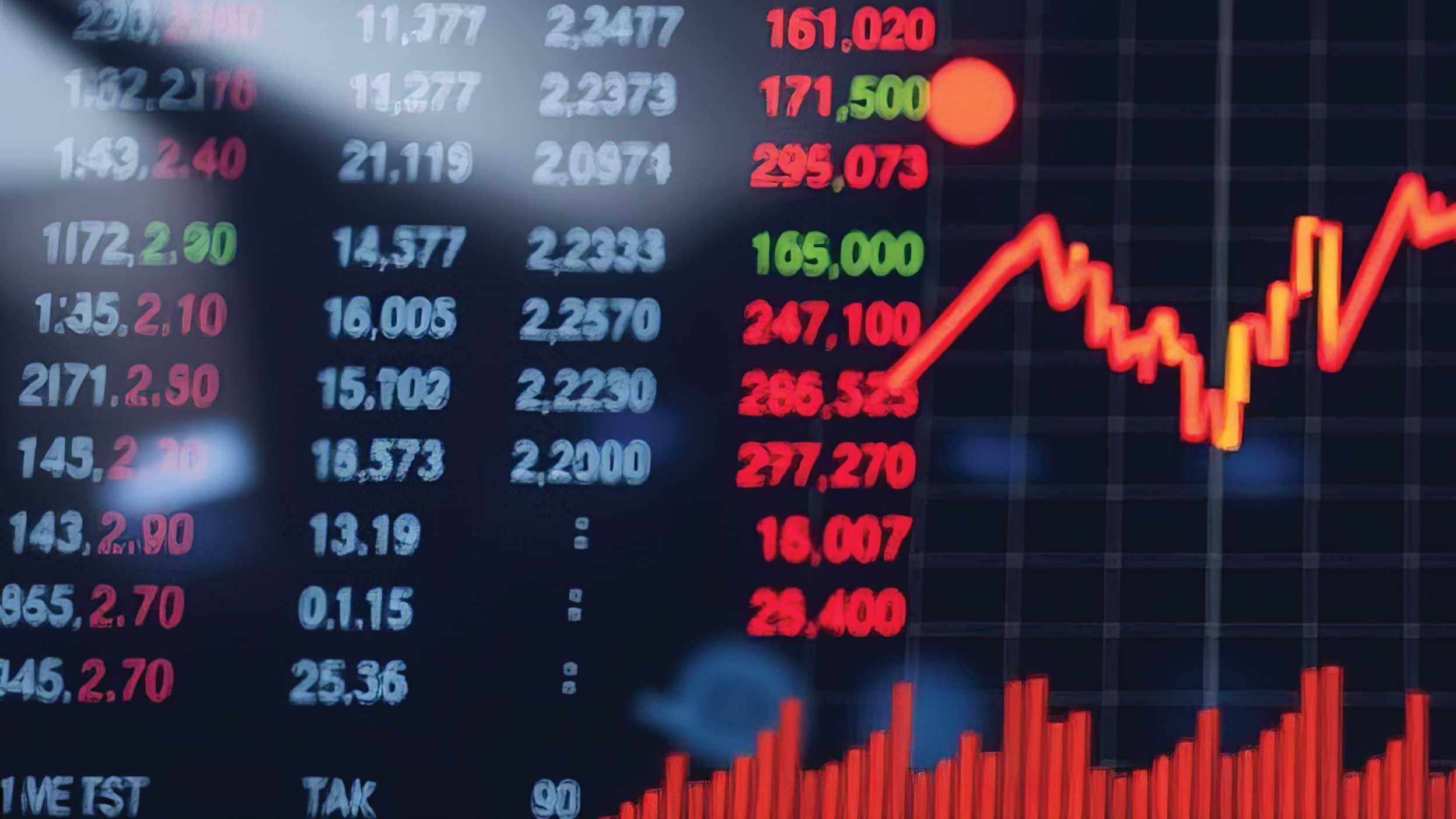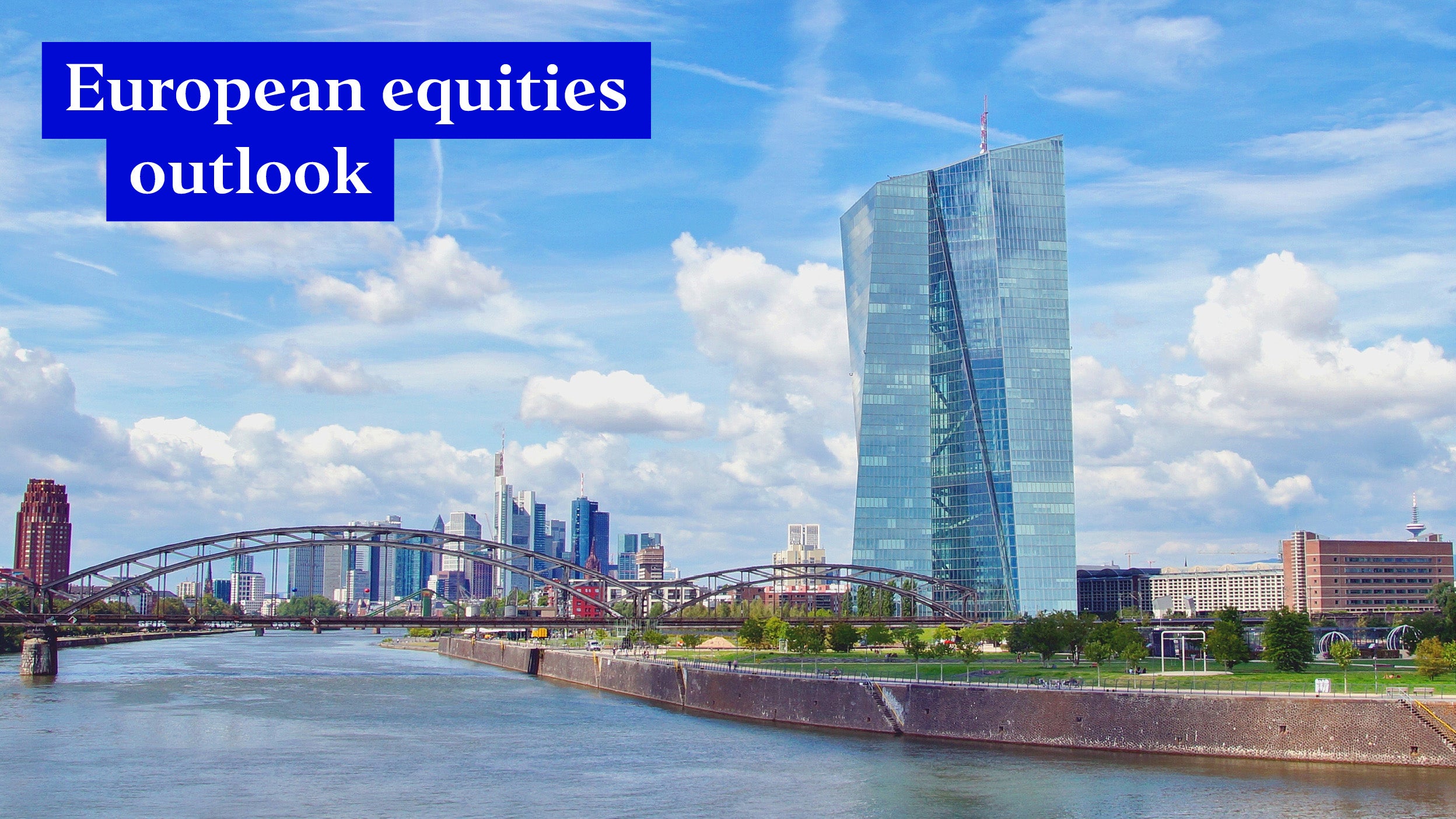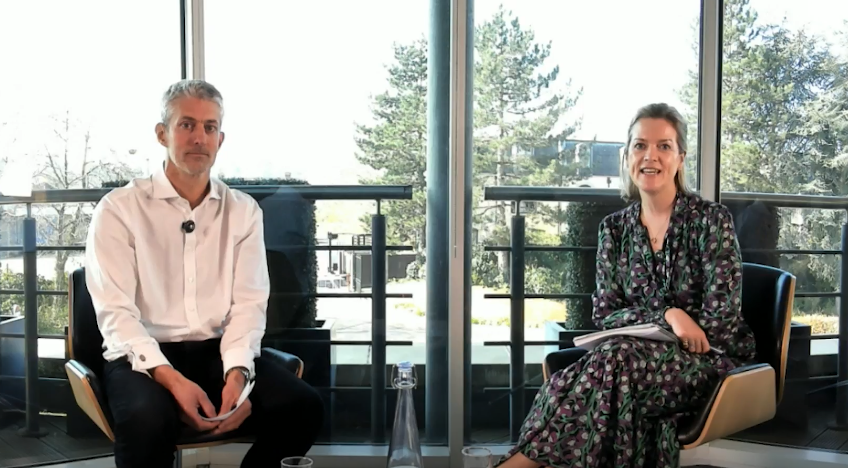
Lessons for market drawdowns
Stephen Anness, Head of Global Equities, shares some lessons learnt from the previous drawdowns we’ve experienced in order to help investors navigate the ongoing market volatility.

After a decade of falling bond yields, 2021 has, at the very least, made investors sit up and question whether this can carry on indefinitely. The provision of substantial fiscal stimulus, combined with a supportive monetary policy, is a very different policy mix to the one in place since the Global Financial Crisis (GFC).
Some investors may believe it’s easy to write this off as a temporary phenomenon caused by the health crisis, however, we see increasing evidence that this new regime is likely to remain for some time to come. If our thesis is correct, the implication for European equities, and in particular what types of assets to own, are very significant.
When writing these annual pieces, we like to look back at last year’s outlook to assess where we were right and where we got it wrong.
Earnings recovery: Going into 2021, we were confident the earnings recovery would be better than many believed at the time and that this would be critical for market direction. This has proven to be the case, with the European index rising the best part of 20% supported by the very strong economic recovery so far.
Pricing power has returned to cyclicals. Given the lack of capital investment over the last decade or so, we expected supply constraints to become more evident and support higher prices, particularly in early cyclical areas. Various commodities, including oil, for example, have duly benefitted.
Policy has shifted in favour or fiscal. In our view, 2020 drew a line in the sand in terms of the policy mix. We expected a shift to fiscal, and that has largely happened, led by the EU and US. In Europe, the disbursement of EU ‘recovery’ funds has only just begun and can be much more meaningful in 2022.
Value to outperform growth. After a very challenging 2020, value has done much better this year but has still struggled versus growth. But it’s actually more nuanced than that, with cyclical value doing well due to the economic recovery, whilst defensive value, such as healthcare, has lagged.
Utilities to outperform. Given the seismic shift in favour of the net zero agenda and compelling valuation, we thought that utilities were well set for 2021. Unfortunately, inflationary concerns have made investors more cautious about future returns, impacting share prices.
Increasingly, investors are very concerned about supply disruptions and high inflation and whether these could seriously hurt the economic outlook?
It’s going to take time for supply chains and freight rates to get back to normal, not helped by backlogs. To us, this is more of a timing issue than something more permanent. As for inflation, there’s already evidence that we are near or at peak levels, and unless some of the more volatile elements keep going up from here, we should see overall inflation gradually fall back to more manageable levels but, crucially, above the very low levels seen since the GFC.
Overall, the outlook for GDP remains very positive. Because of the nature of the lockdowns, service sectors (restaurants, hotels, etc.) suffered much more than manufacturing during the pandemic. As economies gradually return to normal, the very high levels of household savings built up during the pandemic should stimulate strong spending. On the manufacturing side, low inventory levels and high levels of new orders should also help activity levels once supply chains return to normality. Investment should also benefit.
Above-average earnings growth: On a headline basis, the market is now trading near longer term averages on a PE basis for example, and as such, it’s difficult to argue European equity markets look cheap, limiting the potential for higher ratings. However, there’s still potential for earnings (the denominator) to move higher, with consensus expectations currently being very conservative if GDP is meaningfully ahead of trend growth – something we believe strongly. This means having exposure to stocks which benefit from a positive macro environment, where valuations are still attractive and there remains potential for higher earnings.
Upward pressure on bond yields: If we are right, a positive economic backdrop would also see potential upward pressure on bond yields, which would be a challenge for longer duration equity stocks.
Improving capex: 2021 has seen the first signs of low levels of capital investment beginning to bite on supply across various industries.
Themes expected to work: Several themes have moved to the forefront of the market’s thinking this year, such as climate change, digitalisation of industry and addressing inequality. To date, these haven’t been dominant drivers of performance, but they’re set to be strong investment themes for the future and something we want to capitalise on. We will continue to discuss these areas in detail next year too.
As always, we want to provide our investors with portfolios which have an appropriate balance of risk and reward. This means not only focusing on bottom-up fundamentals but also capitalising on some of the cyclical and structural opportunities available, something we believe our strategies provide.
We’ve argued for a while that a regime change is overdue - a move away from the low growth/low inflation world of the last decade. Fiscal policy has been the catalyst, and what has happened in 2021 only reinforces our view that change is underway and, importantly, is at an early stage. We expect a continuation of these policies in 2022 and beyond. Against this investment backdrop, our strategies have done much better this year, but we believe the potential for outperformance going forward is still very significant.
Capturing investment opportunities from across Europe. The team's high-conviction approach is to take advantage of inefficiencies in the market and buy stocks below what they believe to be their intrinsic value.

Stephen Anness, Head of Global Equities, shares some lessons learnt from the previous drawdowns we’ve experienced in order to help investors navigate the ongoing market volatility.

Find out what regional stock markets look cheap or expensive and learn from our experts about investing opportunities and risks around the world.

In our recent European equities outlook, Georgina Millar and Oliver Collin discuss Europe's market turnaround, Germany's vote, and the improving economic outlook. Highlighting Invesco's active investing targets, specific themes, and the positive outlook for 2025.
The value of investments and any income will fluctuate (this may partly be the result of exchange-rate fluctuations) and investors may not get back the full amount invested.
This is marketing material and not intended as a recommendation to buy or sell any particular asset class, security or strategy. Regulatory requirements that require impartiality of investment/investment strategy recommendations are therefore not applicable nor are any prohibitions to trade before publication.
Where individuals or the business have expressed opinions, they are based on current market conditions, they may differ from those of other investment professionals and are subject to change without notice.